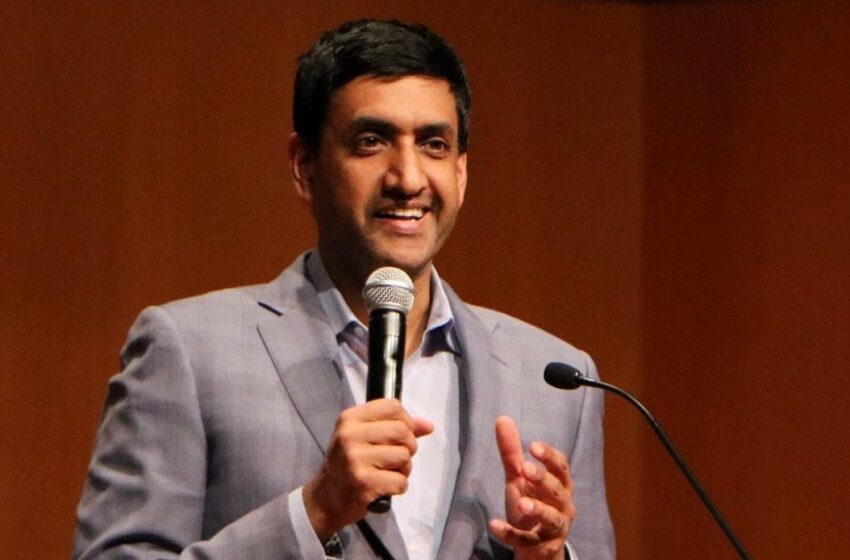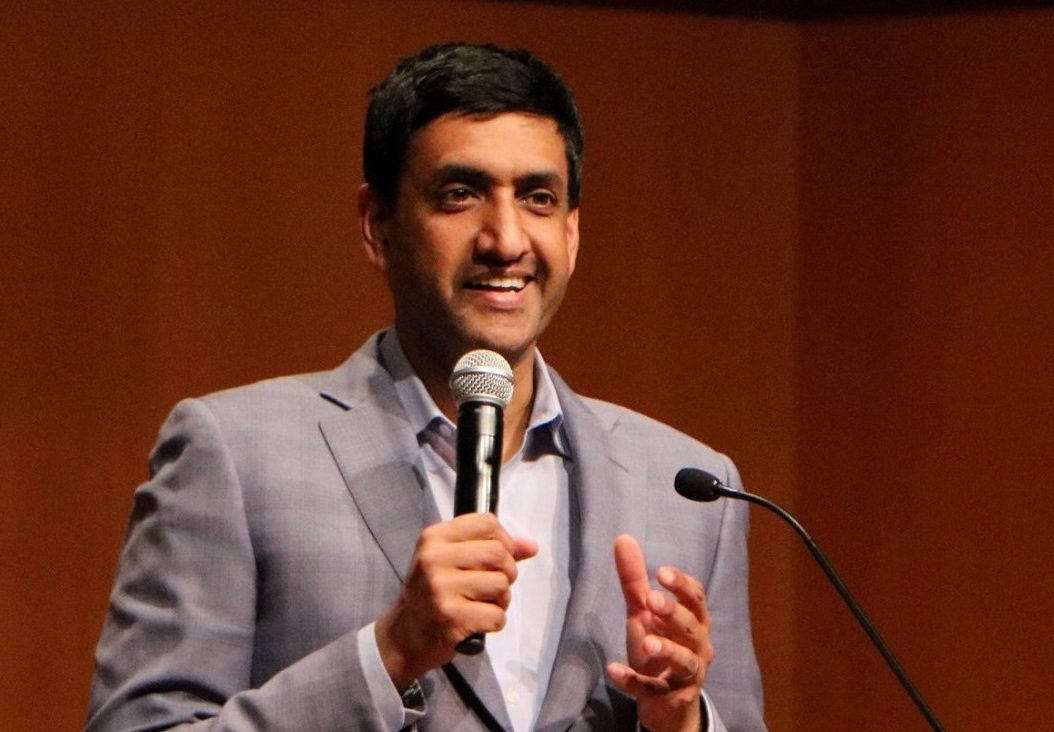Indian Americans should strengthen US-India ties: Ro Khanna

 Lawmaker urges Indian diaspora to focus as a community on unifying issues to be proud of their identity
Lawmaker urges Indian diaspora to focus as a community on unifying issues to be proud of their identity
Ro Khanna, a US lawmaker of Indian descent who represents Silicon Valley in the House of Representatives, says the goal of Indian Americans in the US Congress should be to strengthen the relationship.
“The idea that Indian Americans can reshape Indian society is naive. But we can affirm our own values and speak clearly about our own values,” he told reporters ahead of a day-long US-India Summit on the Hill on April 26.
Read: US-India Summit on the Hill on April 26 (April 25, 2023)
“So that’s a model which we hope others will see as persuasive. So the goal of Indian Americans in Congress should be to strengthen the relationship while continuing to speak to basic values and standing up for those values and speaking out where we think those values aren’t being upheld,” Khanna said.
India is also unlikely to look at Russia as a “secure” friend, given Moscow’s closer ties with Beijing in the wake of the raging war in Ukraine, he said.
“I don’t think that given the closer ties between Russia and China, India would look to Russia as a secure friend to hedge against the invasion, potentially, of its border in Asia, and that they [Indians] know the United States would be a more trusted partner for that objective,” he said.
It is in India’s interest to align more firmly with the US in terms of the “best hedge” against China, he said, adding that it has been a significant factor in Indian foreign policy.
Indian External Affairs Minister S. “Jaishankar has been clear that that doesn’t mean they will march lockstep with our interests in the United States, but they want to align at this moment because they see that it’s strategically important,” Khanna said.
Read: Attack me. Don’t attack India’s freedom fighters: Ro Khanna (March 29, 2023)
Hosted by the India caucus, the summit features a dialogue with government leaders, experts and Indian American leaders from around the country with panels discussing topics centered around strengthening the US-India strategic and economic relationship.
Besides Khanna and Mike Waltz, Co-chairs of India caucus, speakers include, Rich Verma, former US ambassador to India and Deputy Secretary of State for Management and Resources, Gen James Mattis, former US Secretary of defense, Taranjit Singh Sandhu, Indian ambassador to the US and Eric Garcetti, US ambassador to India.
Khanna also urged those among the Indian diaspora who have been raising the bogey of growing “Hinduphobia” lately, to focus on unifying issues.
The lawmaker also indicated that he will push for an invitation to Indian Prime Minister Narendra Modi to address a joint session of Congress during his June visit, which has as yet not been announced officially.
“I think that what we have to focus on as a community is how do we contribute to the American project? How do we be proud of our identity?” he said.
“And obviously if someone feels that they are discriminated against, they should speak up, but my personal experience has been one of great hope for the American people, that they have been very embracing and understanding of people of different faiths.”
Read: India unlikely to look at Russia as secure friend: Congressman Ro Khanna (April 26, 2023)
“I think you’ve got Indian Americans leading the most important companies in the world. Now, there was a time you know, back in the 1980s, where people couldn’t meet a staffer for a member of Congress. They didn’t cry Hinduphobia,” Khanna said.
Khanna said the India caucus could write to House Speaker Kevin McCarthy to invite Modi to address the joint session of Congress, which is an honor that is not extended to every visiting head of state or government.
Modi first addressed the US Congress in 2016, Khanna’s suggestion, if it goes through, will make him the first Indian Prime Minister accorded this honor twice.
Five other Indian Prime Ministers have done so only once each: Jawaharlal Nehru (1949), Rajiv Gandhi (1985), P.V. Narasimha Rao (1994), Atal Bihari Vajpayee (2000) and Manmohan Singh (2005).

